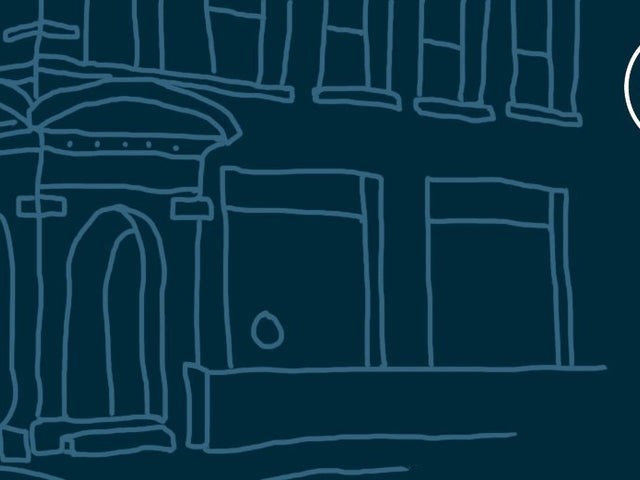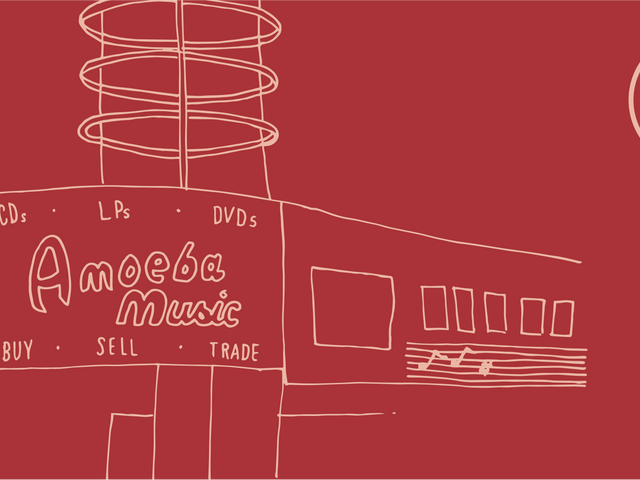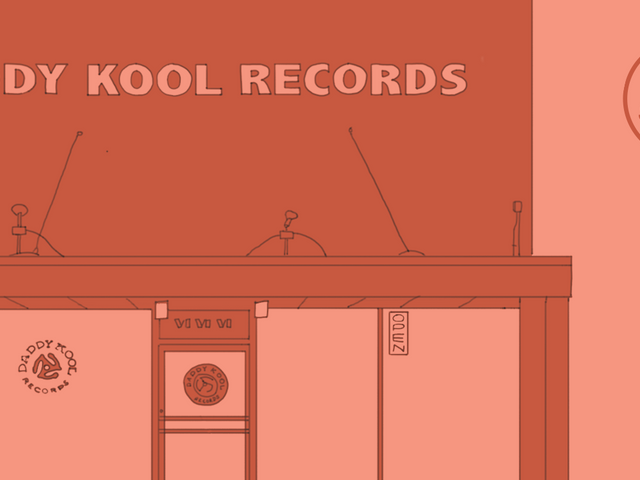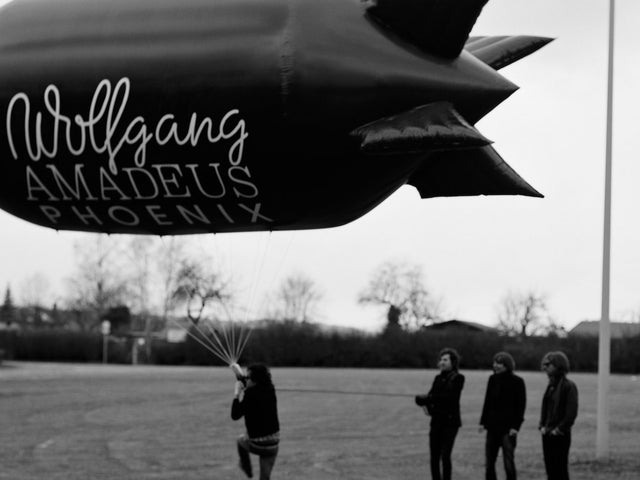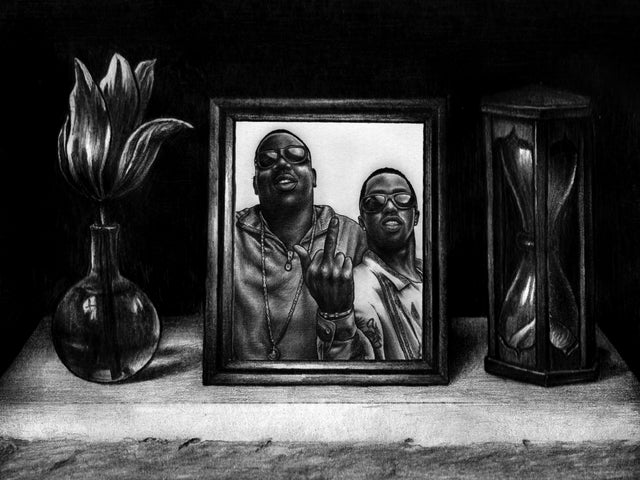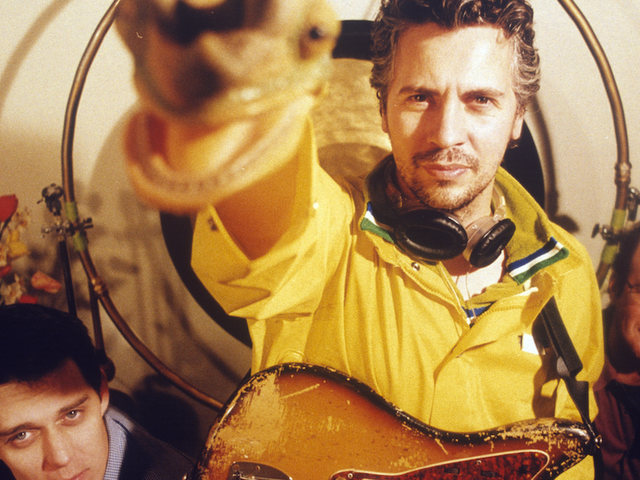“50 Toko Rekaman Terbaik di Amerika” adalah serangkaian esai di mana kami mencoba menemukan toko rekaman terbaik di setiap negara bagian. Ini bukan selalu toko rekaman dengan harga terbaik atau pilihan terbanyak; untuk itu Anda bisa menggunakan Yelp. Setiap toko rekaman yang ditampilkan memiliki cerita yang melampaui apa yang ada di raknya; toko-toko ini memiliki sejarah, mendorong rasa komunitas dan berarti sesuatu bagi orang-orang yang sering mengunjunginya.
The Wasatch Mountains loom like guardians over much of Utah’s population. At the time I grew up in the state, roughly half its two million residents occupied a compact geographic area known as the Wasatch Front, hemmed in by wilderness on both sides. To the east, the Rockies rise, up--towns grow smaller and further between, radio signals dwindle to nothing. To the west lies the flat white expanse of the Bonneville Salt Flats, the shallow and sprawling Great Salt Lake and the cratered desert of the Dugway Proving Grounds, where the U.S. military has tested munitions stretching back to the atomic age.
While the desert landscapes of Utah’s Great Basin may all be forbidding in their own ways, it would be a mistake to think them empty or lifeless. Deserts are not dead. They aren’t even dormant. The desert climate merely forces life to evolve in new directions, or underground, where succulents and sego lilies bloom up through the cracks in the arid earth.
When considering Utah's culture — widely stereotyped as religious, white-bread heterosexuality in a clip-on tie — many people make similar mistakes. But just as the desert climate changes the life that flourishes there, us outliers that rose up in the strict, dry soil of the Wasatch Front adapted to survive. We sought out any oasis we could, and Graywhale on Riverdale Road was mine.

Graywhale got me through many a musical phase, be it my preteen flirtations with glam rock and new wave to my longer and more serious courtship with industrial and Neue Deutsche Härte. Several of my Mormon friends weren’t allowed to set foot in the store, and they’d send me in with a tenner and a handwritten list: T-Rex, Pixies, U2. This may sound like an anecdote from an alternate timeline, but Ogden in the ’90s was the sort of town where requesting a U2 song on the radio resulted in a, “Sorry, we don’t play alternative.”
It was a different time, in a slightly funny place, OK?
Music has always been an indication of culture and identity. From spotting a beloved band’s T-shirt on a stranger in a crowd to bonding with new friends over shared tastes, music has always been that secret language. In a place where those who colored outside the cultural lines could be few and far between, sharing a favorite band was enough to shift someone from stranger to my people.
Raised outside the state and then deposited in Utah by non-Mormon parents at a young age, I knew I wasn’t ever going to fully fit in. I was comfortable with that. But as I grew older and started to understand that there was a whole spectrum of not fitting in beside the binary so are you Mormon or not? the cultural lifeline offered by places like Graywhale grew even more important. Around age 13, I realized that the weird fluttery-stomach feelings I got around a neighbor girl were the same sorts of feelings my friends felt for boys. I took to my grandmother’s computer and discovered that there were whole swathes of internet where girls kissed girls and boys kissed boys and nobody thought that was awkward or weird.
And in the midst of this online festival of sin, I discovered that gay culture had its own music. And you couldn’t purchase a lot of it at the FYE in the mall.
At Graywhale, I’d pore through racks of $2 and $5 CDs for Pet Shop Boys singles and Placebo imports. I discovered Kate Bush, instantly loved her, and Googling Kate Bush fan clubs online led me to my first-ever primer on queer coding. From then on, I spent as much of my time in Graywhale observing the clientele as I did the merchandise. A certain band T-shirt didn’t just mean you’re my people now, it meant you’re my people and you might be a girl that would let me date you.
In the wider Wasatch, those wonderings never really rose to the surface. It wasn’t that I felt unsafe, more that Utah culture was so successful at smoothing away such cultural imperfections as lesbianism that it didn’t even occur to me other gays existed for the longest time. Stepping through the doors of a place like Graywhale was like slipping through the wardrobe and into Narnia: Fellow queers weren’t mythical here.
Apart from the CD selection implied by its name, Graywhale carried a variety of movies and records and eventually video games and comics, a sort of one-stop shop for media you wouldn’t find in mainstream chains designed to attract a Utah audience. It was at Graywhale where I first acquired a VHS of Angels in America, the HBO adaptation of Tony Kushner’s heartbreaking exploration of society, sexuality and religion at the height of the AIDS crisis. I remember the hushed awe with which I explained the plot to my friends in high school, many of whom were on their own journeys to eventual queerdom: You guys, this thing has a gay Mormon in it!
Graywhale also served as a hub of information and exposure to new music by means of its bulletin board, gig guides and listening stations. I took girls on dates there in high school, where all we did was wander around and look at what was on the shelves and listen to new releases on the headsets the store provided. Hey, I was making $5.35 an hour at Domino’s Pizza, cheap dates were to be expected. As I grew older and started writing, I used Graywhale’s gig guide to search for concert jobs, or to wheedle my way in to watch shows on the cheap, then try to write about them after-the-fact for whichever publications would take me.
In the golden age of streaming, it’s never been easier to find content you can relate to. Social media and hashtags and playlists make it a breeze to share things with like-minded friends. Recent focus on representation in media means that queer kids — or brown kids, atheist kids, trans kids or anyone else growing up in Utah who might not fit the mold — no longer have to beg for scraps in Showtime specials to find ourselves reflected in the things we watch.
And as I grew up, I was struck by the sobering realization that I was lucky to have this place. Lucky to have a mother who’d been so accepting, who dropped me off there for hours to browse the racks. Some of the girls — and later boys — I took to Graywhale couldn’t mention it to their parents. One of them politely informed me later that her mother said I wasn’t allowed to see her anymore. And all the while, we’d had this perfectly insulated place where the staff never gave us a second glance.
We had no idea how fortunate we were. Hemmed in on all sides by mountains and desert, we’d found a place to bloom up through the cracks.
Casey Lucas is an American-born author and journalist who now resides in New Zealand. All she needs in life is a cabin in the woods and a good set of headphones.
